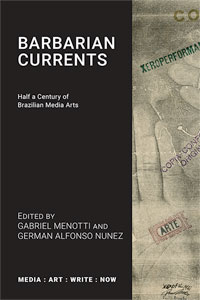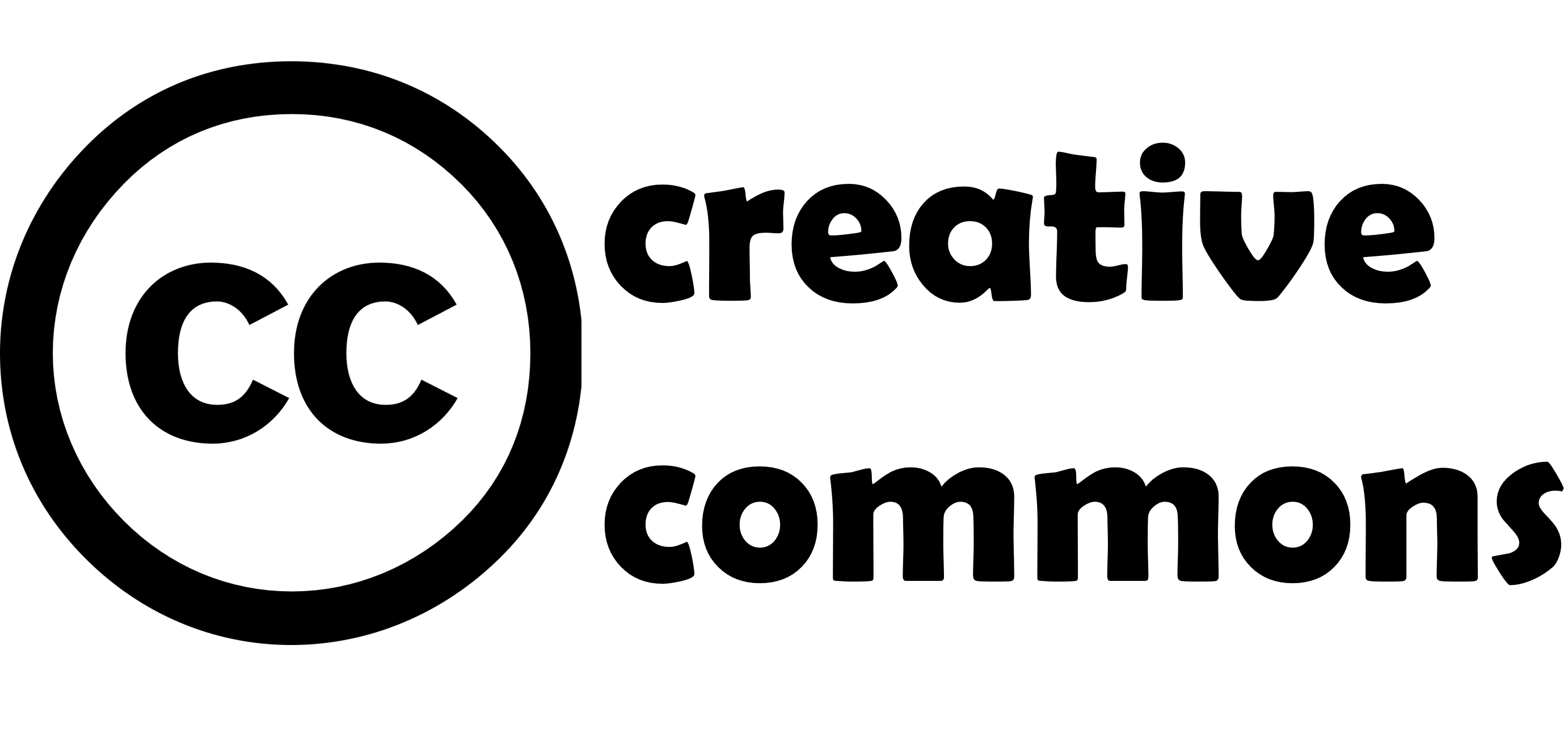This is the second part of an initial 5,000 word draft of a specially commissioned piece on the commons and Creative Commons. It’s for an open-access online glossary on the contemporary condition and near future that's being produced by the Chinese Academy of Art.
Contents:
I: Introduction * Conceptual Overview * Elinor Ostrom and the Tragedy of the Commons * Liberal Commons * Radical Left Commons * From Capitalism to Postcapitalism – and Back Again
II: The Undercommons * Latent Commons * Uncommons * The Unknown Common * Common Misunderstanding No.1: The Commons is Not Inherently Left-wing
III: Creative Commons * CC and AI * Common Misunderstanding No.2: Creative Commons is Not a Commons * The Commons and Creative Commons: Some Distinctions * Alternatives to Creative Commons
iV: Conclusion: Common Misunderstanding No.3: Commoner is Not an Identity * Common Misunderstanding No.4: There is Not One Commons
---
The Undercommons
In The Undercommons, Stefano Harney and Fred Moten (2013) challenge conventional political, economic and academic structures, arguing that resistance cannot be confined to restoring or reforming institutions such as the university. As far as they are concerned, the North American academy is a site of professionalisation and managerialisation that absorbs and neutralizes radical thought (including Autonomist Marxist theories of the commons and common), turning “insurgents into state agents” (2013, 38). In response, Harney and Moten introduce the concept of the undercommons, which eludes the removal of the place of the commons and commoners through being a nonplace, one “that must be thought outside to be sensed inside” (39). The undercommons is a place of “refuge” (28), where “outcast mass intellectuality” (33) – not just academics but para-academics, precarious workers and those who have left or never entered the university – cultivate a collective intellectual and social life that exceeds the constraints of the university, the state and capital, and in so doing escapes them (30).
Rejecting appeals for inclusion within the university, Harney and Moten advocate fugitive study: a communal, improvisational and performative practice of learning and being together that resists institutional capture and assimilation, never settling into a solid unified identify. This resistance does not seek recognition or legitimacy from the dominant system or its professional-managerial class – not even as critical intellectuals. (Harney and Moten regard the latter as being generally negligent and complacent.) Instead, it involves cultivating alternative forms of shared knowledge, pedagogy and action within fugitive spaces underneath the critical. “[T]o be in but not of – this is the path of the subversive intellectual in the modern university” (26). Drawing on Marxist philosophy and the legacy of Black radical thought, The Undercommons embraces a politics of abolition and criminal acts over participation in or negotiation with oppressive structures. “[S]teal what one can” – Harney and Moten regard this as “the only possible relationship to the American university today” (26). It is in this spirit that they call for insurgent intellectual and social practices that build new forms of life in the cracks of the system. They even go so far as to consider abolition as ultimately bearing a resemblance to communism, in that it does not call for the “elimination of anything” but rather “the founding of a new society” (42).
Latent Commons
 Matsutake mushroom picking
Matsutake mushroom picking
Anna Tsing’s concept of the latent commons, as articulated in The Mushroom at the End of the World, refers to ubiquitous yet often overlooked and undeveloped forms of collaborative survival and resource-sharing that persist within capitalism’s ruins, albeit without the “handrails” of “modernization and progress” (Tsing 2015, 2). These practices do not conform neatly to the dominant economic frameworks and cannot be fully captured by them. Crucially, they are not “exclusive human enclaves” either remaining open to other beings including weeds, pests and diseases – world-making and alienation both being potential attributes of nonhumans as well as humans (Tsing 255, 121, 271). It should be noted that such ontologically heterogenous, relational – and thus site specific rather than universal or scalable (220-221) – forms of commons are being proposed increasingly (see also Blaser and de la Cadena below). These are commons that construct social relations with nonhuman or more-than-human entities and beings as actors and agents and not just objects.
Tsing explores how precarious livelihoods – especially “off-the-grid jobs” such as rare matsutake mushroom picking – cultivate alternate forms of sociality and mutual human and not-human reliance that resist strict privatization and commodification (2015, 33). In contrast to traditional, liberal or radical left visions of the commons, latent commons “don’t institutionalise well” (255). Far from being governed by fixed principles and rules they are informal and flexible. Consequently – again unlike more formal commons – they cannot be easily translated into structures with intentional strategic policies or prescribed behaviours. Instead, they exist in ephemeral, effervescent, “elusive” guises (255), operating within the interstices of capitalism and the law, rather than in direct opposition to them (as distinct from Harney and Moten’s insurgent practices, which also dwell within capitalism’s cracks, but adopt a more antagonistic stance).
Being “neither properly inside nor outside” of capitalism (278, 134) – and intertwining with “multispecies others without knowing where the world-in-process is going” (264) – latent commons on Tsing’s account do not lead readily to redemptive and “utopian plans for solidarity” (134). They are “here and now, amidst the trouble. And humans are never fully in control” (255). Nevertheless, they signal the potential for collective forms of life that are beyond market logics, even if they are not fully disentangled from capitalist structures and the global supply chains that translate between capitalist and noncapitalist value systems. For Tsing, this is enough to maintain that such shifting polyphonic assemblages – such open-ended gatherings of ways of being – still contain the potential to be “mobilized in common cause” (135). Moreover, whereas many of capitalism’s critics insist on its unity and homogeneity as a system – some, like Hardt and Negri, even claiming “there is no longer a space outside of capitalism’s empire” (65) – Tsing counters that the economic diversity of latent commons “offers a chance for multiple ways forward,” not only and just that one powerful current of progress represented by an over-arching capitalism (65). To reiterate, she does not frame these noncapitalist forms and value regimes as strict alternatives to capitalism, however, so much as practices that exist within capitalist worlds: that both interact with capitalism and are drawn upon by it, even as capitalism remains dependent upon them. “There is room here for imagining other worlds” all the same (282), including “an alternative politics of more-than-human entanglements” (135).
Uncommons
Building on Isabelle Stengers’ idea of “interests in common which are not the same interests,” Mario Blaser and Marisol de la Cadena’s concept of the uncommons challenges the universalising tendencies of the commons by foregrounding the existence of multiple, incommensurable worlds and their practices (Stengers 2005; Stengers 2011, 60; Blaser and de la Cadena 2018, 4). In A World of Many Worlds, they argue that many notions of the commons assume both: a single, shared reality in which resources and governance can be collectively managed; and an ontology in which humans and nature are conceived as being “distinct and detached from each other” (18). Blaser and de la Cadena emphasise how different groups – including Indigenous peoples and those in the global South and global periphery – do not necessarily share the same homogeneous ontological assumptions about what constitutes reality, property, ownership, sustainability or collective life. The relations between these communities can therefore be fraught, even antagonistic. The complexity of the situation is increased by the fact that their divergences extend beyond their different realities and ontologies: they can also include the relation between them, how it is perceived and understood it. This relation, too, can exist in multiple, incommensurable forms and be the subject of “adversarial dispute” and not just “allied agreement” (18). The grounds where the “negotiated coming together” of these “heterogenous worlds” can take place is what Blaser and de la Cadena mean by the uncommons (2018, 4). Politics is again not absent but pluralised, as “these alliances may also be capable of refracting the course of the one-world world and proposing … the practice of a world of many worlds, or what we call a pluriverse: heterogeneous worldings coming together as a political ecology of practices, negotiating their difficult being together in heterogeneity” (4).
The Unknown Common
Roberto Esposito introduces a further layer of complexity. He argues that we currently do not possess even the language to talk meaningfully about the common (without an s) – something that, he suggests, “was effectively excluded:” initially from the “process of modernization” and the invention of the state; and later from the “process of globalization” (Esposito 2013, 89). For Esposito, the common can be understood in terms of neither the public nor private (whether as good or property), the global nor local. The common exists rather as something “largely unknown,” and even resistant, to our established ways of thinking and categorizing the world (89).
Common Misunderstanding No.1: The Commons is Not Inherently Left-Wing

Thanks to movements such as the Zapatistas in Mexico and Barcelona en Comú in Spain the commons has – in recent decades especially – become closely associated with anti-capitalist politics and the left. Among Marxists, socialists, anarchists and eco-feminists it is perceived: as a space in which to experiment practically with alternative ways of organising resources to capitalism; as a means of reclaiming the common from capitalism and its version of the state; even as prefiguring the cooperative or communist postcapitalist societies the radical left is struggling to create. (By contrast, the work of radical thinkers such as Jean-Luc Nancy [1991], Giorgio Agamben [1993], and Roberto Esposito [2009] on the politics of community and the common has been criticised for being too philosophical and abstract.) Yet the commons can also take right-wing, conservative and libertarian forms. A country club, hunting lodge, gated community or cryptocurrency network may all function as a commons, while many free software communities align more closely with right-libertarian principles, valuing individual merit, competition and minimal regulation. Advocates of neoliberalism may similarly regard the commons as a more efficient means of producing for the market, since it is free from centralised state control and bureaucracy; while some supranational organisations, including both the World Bank and United Nations, have privatised natural resources such as seas and rainforests under the guise of “protecting biodiversity” and “preserving the common heritage of mankind” (Federici 2016). Ironically, one of the most well-known “commons,” however, is not a commons at all.
 Wednesday, July 23, 2025 at 1:06PM
Wednesday, July 23, 2025 at 1:06PM  Gary Hall | Comments Off |
Gary Hall | Comments Off | 












